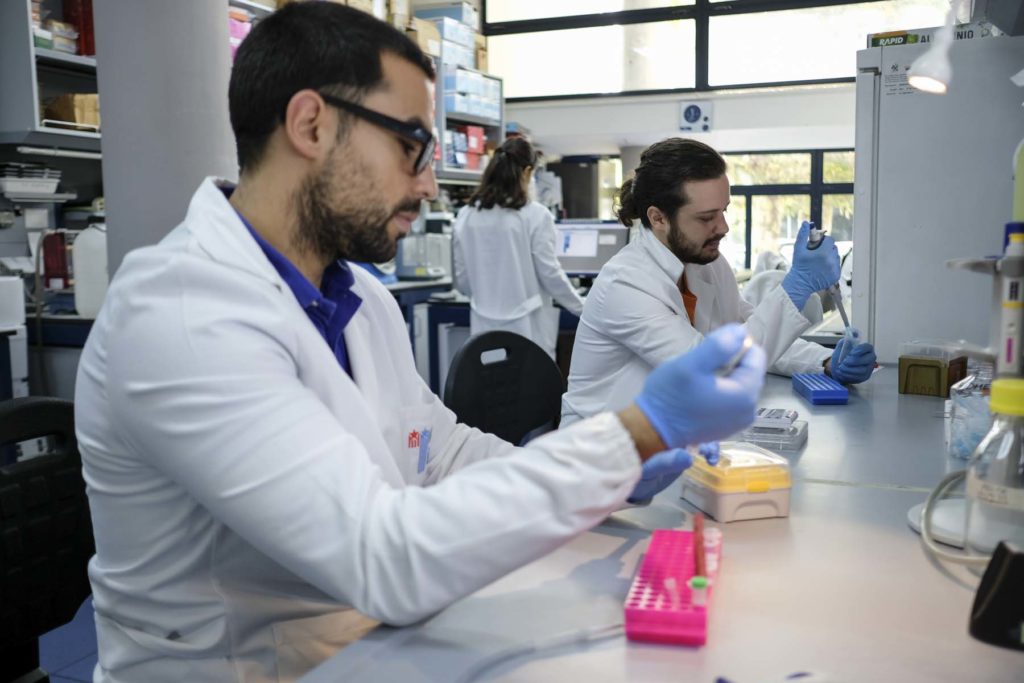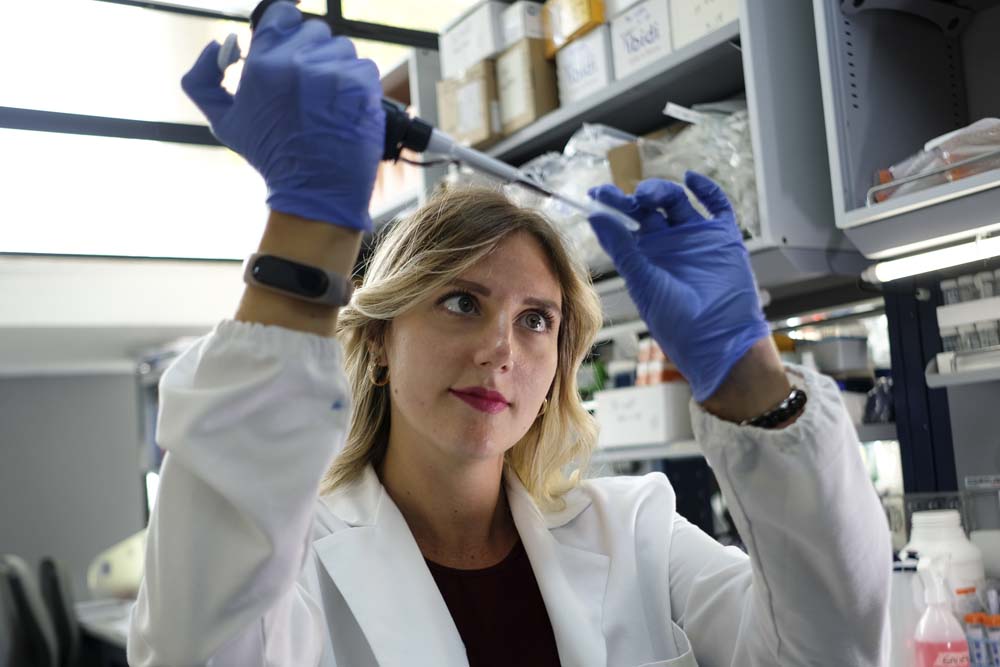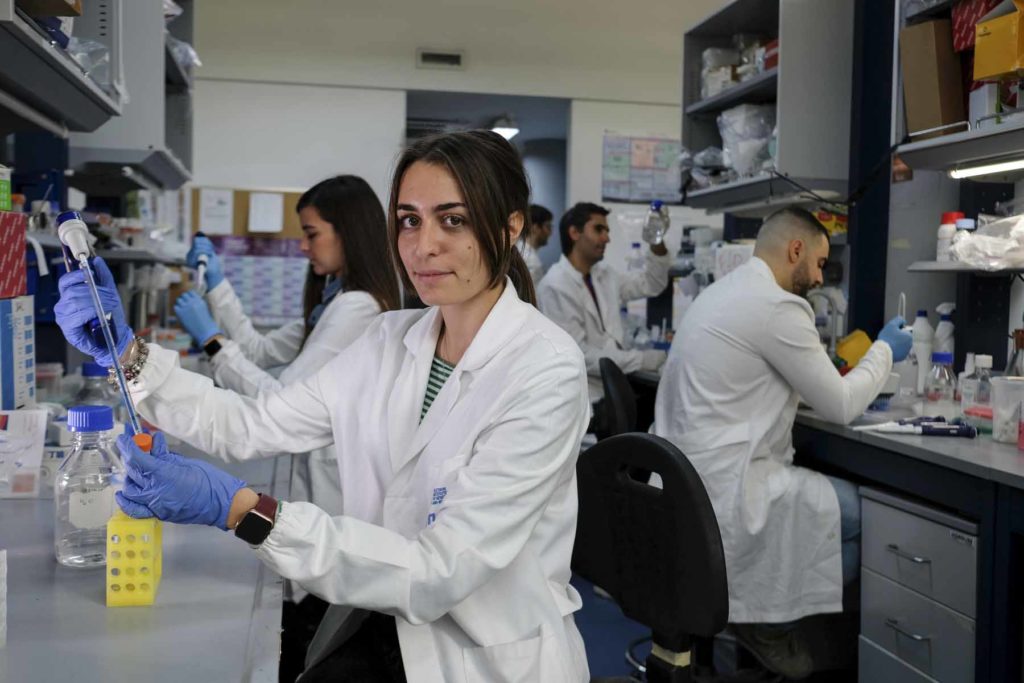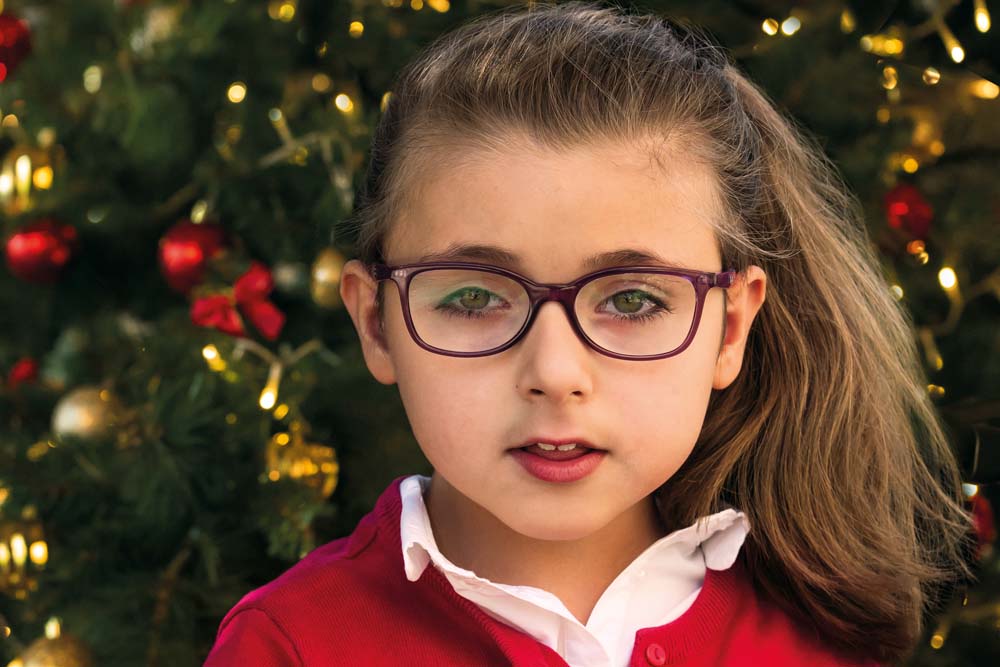The Institute, directed by Prof. Alberto Auricchio, is a centre of excellence for research in Italy. In 2013 it moved to a new location in the former Olivetti factory building and has become a pole of attraction, drawing researchers from all over the world.
The Institute studies the genetic bases of diseases in order to develop novel therapies. The competitiveness of Tigem is also reflected in its ability to attract the support of prestigious international funding bodies, including the European Research Council (ERC).
“We were among the first to develop a gene therapy for certain forms of hereditary blindness”.
Andrea Ballabio, Fromer Director of Tigem
Lines of research
The Institute conducts research projects along three main lines.

Cell biology
The use of cell and animal model systems, with the support of advanced microscopy, to study the mechanisms underlying genetic diseases: understanding these is the first step towards identifying a possible treatment.
Heads of the research teams involved:

Medical genomics
Bioinformatics is used to analyse the behaviour and interaction of genes, develop mathematical models of biological processes, study possible alternative uses of conventional drugs, discover genetic causes of undiagnosed diseases.
Heads of the research teams involved:
- null
- Diego di Bernardo (coordinator)
- Giorgio Casari (coordinator)
- Sandro Banfi
- Davide Cacchiarelli
- Vincenzo Nigro (facility manager)
- Ivan Conte

Molecular therapy
The development of new therapeutic approaches involving the use of small molecules or gene therapy to correct the defects that are the cause of serious genetic diseases for which there is still no effective treatment. Heads of the research teams involved:
- Alberto Auricchio (director)
- Alessandro Fraldi
- Nicola Brunetti-Pierri
- Giancarlo Parenti
- Pasquale Piccolo
- Elvira De Leonibus (facility manager)
The diseases we study
Diseases caused by defects in cell communication: which?
Lysosomal storage diseases: which?
Retinal degenerative diseases: which?
Metabolic disorders of the liver: which?
Rare and unknown diseases
Some diseases are so rare they don’t even have a name.

To provide a diagnosis to the many patients with a disease without a name like Camilla, as the first step towards improving their life and giving them hope for treatment, Telethon launched the “Undiagnosed diseases programme”, the only one of its kind in Italy.
Top-level training
Researchers are selected on the basis of merit, through interviews and competitions, in line with the values of Telethon. The Institute then organises training programmes to connect young researchers with the mission of Telethon: to find a treatment for rare genetic diseases.
Tigem also collaborates with two leading universities to provide high-quality PhD and training programmes for researchers. The two universities of reference are: Open University programme in Human Genetics and European School of Molecular Medicine (SEMM) programme in Molecular Medicine (CEINGE, IFOM, Federico II, Università di Milano).